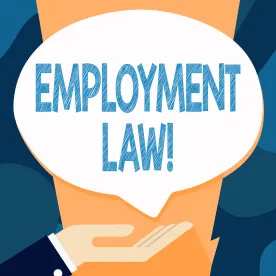Parliament’s Private Members’ Bills ballot gives backbench MPs the opportunity to propose new legislation or changes to existing laws on a topic of their choice. We wouldn’t normally report on Private Members’ Bills as very few of them ever become actual law and some are downright silly – if you can still find it, take a look at the Dignity at Work Bill, a brilliant Monty Python spoof of a real employment proposal aimed at addressing workplace upset, almost however trivial, by a vast and rigid mechanical process with more steps for the employer to fall down than the Eiffel Tower. However, on 15 July, two employment-focussed Bills were given airtime in Parliament under that process and as both reflect previous “commitments” made by the government, they may stand a greater chance of making it over the finish line to the statute books.
The Bills in question are the Neonatal Care (Leave and Pay) Bill and the Employment (Allocation of Tips) Bill. Sound familiar?
The former seeks to create a new statutory right to leave and pay for working parents whose child is receiving, or has received, neonatal care. According to the Office for National Statistics, an estimated 100,000 babies every year across the UK are admitted to neonatal care. The government previously committed to introducing such a right along with a number of other measures as part of a new Employment Bill, but this has yet to materialise and, as it was not mentioned in the most recent Queen’s Speech, seems unlikely to appear any time soon.
The Bill proposes that employees with a parental or other qualifying relationship with a child who is receiving, or has received, neonatal care will be able to take at least one week’s leave to care for the child. The intention seems to be to make this 12 weeks, as per the government’s previous commitment. All employees who meet the eligibility conditions will be entitled to this leave, regardless of how long they have worked for their employer. The leave would only be available within 68 weeks of the child’s birth. Employed parents would be entitled to pay at the usual statutory rate of pay for family-related leave (currently £156.66/week), provided they meet the minimum earnings test. As you would expect, parents seeking or taking such leave would have the same employment protections against detriment or dismissal as those already applicable with other types of family-related leave.
In a blatant play for the yoof vote, the Employment (Allocation of Tips) Bill aims to create a new legal obligation on employers to allocate tips, gratuities and service charges to workers without deductions. The Bill will require employers to ensure that the distribution of qualifying tips between workers is “fair”, this to be judged in line with a new statutory Code of Practice to be introduced at the same time. Tribunals will be given new powers to order employers to revise the allocation of tips or to make a payment to any workers deemed unfairly treated by that measure. Employers will also be required to have a policy in place setting out how tips are allocated between workers, which will presumably be little more than a re-hash of the Code as otherwise it will be in breach immediately.
These Bills clearly still have some way to go before they become actual law but as there seems to be cross-party support for them they do seem more likely to progress. We also know from comments previously made by the then Parliamentary Under-Secretary for BEIS in response to questions raised in the House of Commons that behind the scenes the government has been working with HMRC to ensure the necessary systems are in place for the new rights to neonatal leave and pay to work. The government had previously committed to introduce the measure in the 2023/24 financial year, which apparently is still possible but things will have to move through Parliament PDQ for this to be achieved. It’s worth noting that a number of other employment-related Private Members’ Bills have also been tabled for this parliamentary session, including the Protection from Redundancy (Pregnancy and Family Leave) Bill and the Carer’s Leave Bill, but as they are likely to get less time for debate they will stand a lower chance of ever becoming law.




 />i
/>i

